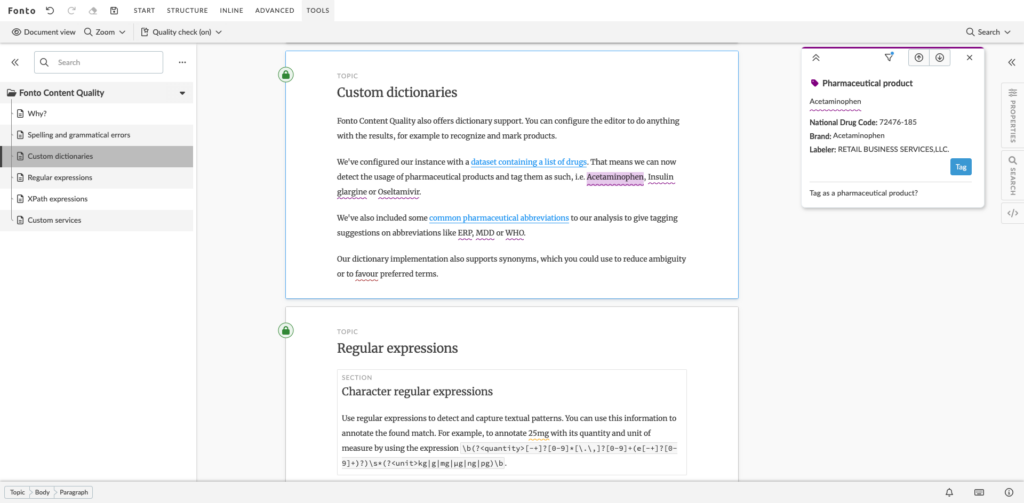In pharma—and many other industries, too—Microsoft Word is the tool to create content. It’s the natural environment for many subject-matter experts to write, edit and review content. Every author is familiar with the Word interface. But it’s not structured content that’s created …
“We cannot change the authoring experience”
Forcing subject-matter experts, for example medical writers, to give up Word and start using tools that require extensive training and show unintuitive behaviors normally leads to a lot of frustration and resistance. “We cannot change the authoring experience” is the argument we hear most when suggesting the switch to a structured content authoring solution.
Although Word isn’t the tool for creating structured content, the interface is very familiar to authors. Staying close to a well-known user interface supports the transition to structured content. Keeping the ‘technical XML terminology’ away from the users and providing them with a more traditional document experience supports the move away from Word.
With additional intuitive tools, it’s easy to add structure to the components. This doesn’t require any knowledge, but is as easy as correcting your spelling based upon spell checker suggestions.

Moving away from Microsoft Word is a complex discussion
And it’s nothing new. This discussion comes up every time we recommend a transition from traditional documents to structured components. Back in 2016, my colleague Taeke Kuyvenhoven already wrote about ‘A move away from Microsoft Word’ in the case of a standardization organization. Today, its structured content authoring platform is in production.
Some key takeaways are: “This platform will allow the authors to focus on standards content as opposed to formatting,” and, “By creating a single, collaborative and integrated place for standards content we are improving efficiency and enhancing the traceability of expert inputs and assisting the community in understanding the evolution of a standard and the origin and rationale of the comments that went into its various drafts.”
Read the full post by Content Rules’ Regina Lynn Preciado and see how structured content authoring can contribute to your business, or experience a Word-like user experience in our Fonto Editor trial.

Customer Success Manager at Fonto – Passionate runner and Dad
